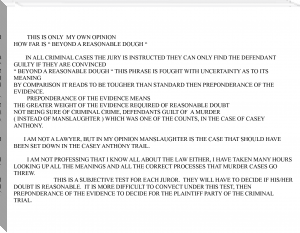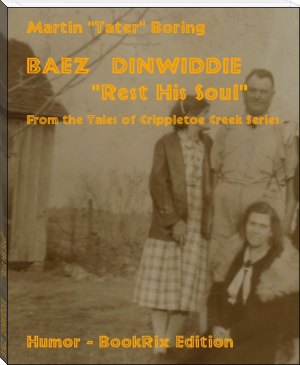All Aboard; or, Life on the Lake<br />A Sequel to "The Boat Club" by Oliver Optic (ebook reader ink .txt) 📗

- Author: Oliver Optic
Book online «All Aboard; or, Life on the Lake<br />A Sequel to "The Boat Club" by Oliver Optic (ebook reader ink .txt) 📗». Author Oliver Optic
Captain Sedley and Mr. Walker then seated themselves in the stern sheets of the Bluebird.
"Now pull for Center Island," said the former. "Tony, you will follow us."
The two boats darted out of the inlet, leaving Uncle Ben in charge of the "recruits."
The Lily and the Dart were eight-oar boats, while the Dip carried only four, and was designed as a "tender" for the fleet. Uncle Ben assigned places to the boys, though there were about thirty left after the oars were all manned. After an hour's drilling, he got the crews so they could work together, and the boats were then employed in conveying the rest of the party over to the boat-house. The others in their turn were instructed and before noon Uncle Ben had rendered them tolerably proficient in the art of rowing.
When the Bluebird reached Center Island, Tim had just embarked in the
Butterfly, and Barney was preparing to do the same in the Zephyr. The
Rovers were utterly confounded at this unexpected invasion of their
domain, and hastily retreated from the beach.
William Bright, who was the coxswain of the Bluebird, ran her alongside the Zephyr, and took her in tow. In like manner they took possession of the Sylph and the "gondola," leaving the Rovers "alone in their glory," with no means of escaping from the island. With the three boats in tow, they pulled for the beach.
"Now for the Butterfly," said Captain Sedley, as he placed the Sylph in charge of Uncle Ben, and directed William Bright to steer up the lake.
Away dashed the Bluebird. The excited crew had observed the Butterfly about a mile off, pulling towards the river. Tim Bunker, at this safe distance, had paused to observe the movements of the invaders. He was as much confounded as Barney had been, and seemed to be at a loss what to do; but when he saw the Bluebird headed towards him, he ordered his crew to pull for the river.
"Steady, boys," said Captain Sedley, when they had approached within a quarter of a mile of the chase. "Probably they will run her ashore and leave her."
But Tim did not mean to do anything of the kind, and was running the
Butterfly directly for the river.
"They will dash her in pieces, I fear," continued the director, when he perceived Tim's intention. "Pull slowly—put her about, and perhaps they will return."
The Bluebird came round; but Tim dashed madly on, heedless of the rocks.
"She strikes!" exclaimed Mr. Walker.
"Round again—quick!" added Captain Sedley. "They will all be drowned!
She fills! There they go!"
The Butterfly had stove a hole in her bow; in an instant she was filled with water, and, careening over, threw her crew into the lake, where they were struggling for life.
"Your boat is stove, Tony," said Captain Sedley to the coxswain of the
Butterfly, who had exchanged places with Fred Harper, for the chase.
"Never mind the boat; save the boys!" replied Tony.
"Bravo! my little hero!" exclaimed Mr. Walker.
In a few moments the Bluebird reached the scene of the disaster. The Butterfly was so light that she did not sink; and most of the Rovers were supporting themselves by holding on at her gunwale. Tim and two or three more had swum ashore, and one would have been drowned, if assistance had not reached him when it did.
The discomfited Rovers were rescued from their perilous situation, and after a severe reprimand, were landed at the nearest shore. Tim made his escape; but probably none of them have since felt any inclination to imitate the freebooters.
The Butterfly was towed down to her house, and taken out of the water. It was found that two of her planks had been stove, and that the damage could be easily repaired. Mr. Walker proposed sending to Boston for a boat-builder; but Captain Sedley was sure that Uncle Ben, with the assistance of the wheelwright, could repair her quite as well.
The Bluebird then returned to the beach, and the boys were dismissed till three o'clock. The situation of the Rovers on the island was next discussed by Captain Sedley and Mr. Walker, and it was decided that, as Tim had escaped, it was not expedient to punish his companions, who were less guilty. So Uncle Ben, with Frank and Tony, was sent off to bring them ashore. Barney and his band were glad enough to get off. They freely acknowledged that they had had enough of "camping out." It was not what they anticipated. Nearly all of them had taken severe colds, and since the rain on Monday night, which had spoiled their provisions, they had been nearly starved. Barney declared that they meant to return the boats that night, and if Captain Sedley would "let them off" this time, they would never do such a thing again. Like Charles, they had been punished enough, and with some good advice they were permitted to depart. How they made peace with their parents I cannot say; but probably many of them "had to take it." As for Tim Bunker, he did not show his face in Rippleton again, but made his way to Boston, where he shipped in a vessel bound for the East Indies; and everybody in town was glad to get rid of him.
Thus ended the famous "camping out" of the Rovers. It was a very pleasant and romantic thing to think about; but the reality was sufficient to effect a radical cure, and convince them that "yellow-covered books" did not tell the truth.
At three o'clock the boys reassembled, and the crews were organized and officers selected. By a unanimous vote, Frank Sedley was chosen commodore of the fleet. The next morning the Butterfly was repaired, and the squadron made its first voyage round the lake.
But as the rest of the week was occupied in drilling, and the maneuvers were necessarily imperfect, I pass over the time till the August vacation, when the fleet made a grand excursion up Rippleton River.
CHAPTER XIX. THE CRUISE OF THE FLEET.The school year was ended; and it was remarked that the school had never been in a more flourishing condition. The boys, stimulated by the boat organizations, had made remarkable progress, and parents and committee sympathized with them in the pleasant anticipations of the coming vacation.
Since his defection in June, the conduct of Charles Hardy had been in the highest degree satisfactory. His character seemed to be radically changed. He did not "put on airs," nor aspire to high places. His pride had been lowered, and he was modest and gentle; therefore my young friends will not be surprised to learn that his associates had rewarded his endeavors to do well by electing him coxswain of the Zephyr.
On the morning of the day appointed for the grand excursion, the squadron, as it formed in line opposite Captain Sedley's house, consisted of the following boats, manned and commanded as below:—
Zephyr, 12 oars, (bearing the broad pennant of
Commodore Sedley,) Charles Hardy.
Butterfly, 12 oars, Paul Munroe.
Bluebird, 12 " Fred Harper.
Rainbow, 12 " William Bright.
Lily, 8 " Henry Brown.
Dart, 8 " Dick Chester.
Dip, 4 " (tender,) Tony Weston.
My young readers need not be indignant at finding so brave and skilful an officer as Tony Weston in command of the little Dip, deeming it an insignificant position for him to occupy; for the tender was to be detailed on special duty, and the appointment was a marked compliment to his skill and judgment.
The system of signals established for the use of the fleet was very simple, and consisted of plain flags of red, white, blue, yellow, green, orange, and purple, each color being a distinct order. The discipline of the fleet was of a mongrel character, composed of naval and military tactics. When the squadron sailed in compact order verbal commands were given; and when the boats were too far apart for the word to be heard, signals were used. But these details will be better understood as the squadron proceeds on its voyage.
The boats were ranged in line, side by side, with the Zephyr on the right, the Butterfly on the left, and the Dip in the middle, each with its gay flags floating to the breeze. All the oars were in-board, and the clubs were waiting for the commodore's orders.
On board the Zephyr, a longer staff than she had formerly used was erected, on which, half way up, was placed her fly, and at the top the broad pennant—of blue, covered with silver stars. On this pole the signals were hoisted, when the pennant had to be lowered for the time.
All eyes were directed to the commodore, who was standing up in the stern sheets of the flag boat.
"Ready!" said he, in a voice loud enough to be heard the whole length of the line; and every boy grasped his oar.
"Up!"
It was a beautiful sight to observe the precision with which the oars were erected. A company of soldiers could not have handled their muskets with more unanimity.
"Down!" and in like manner the oars dropped into the water.
Those who have observed the manner in which a military officer gives his orders have discovered the secret of this pleasing concord of action. Commands consist, except in a series, of two words; and dwelling for an instant on the first keeps all in a state of readiness to act the instant the second is given. Frank had studied the matter while witnessing the evolutions of the Rippleton Guards, and he had adopted the plan in the club. When the captain said "shoulder," the men knew what was coming; and at the word "arms," the evolution was performed. So with "present—arms!" "file—right!" "left—wheel!" etc.; and to these observations he was indebted for the proficiency of his club, and of the fleet.
"Ready—pull!" he continued.
The stroke was very slow, and each coxswain was obliged to keep his boat in line with the others, the flag boat regulating their speed.
When the squadron had reached the upper part of the lake, the pennant was dropped, and up went a red flag.
"Cease—rowing!" said all the coxswains, except the Zephyr's.
Then the red flag was lowered, and a blue one was hoisted.
"In single line," the coxswain of the Bluebird, which was next to the
Zephyr, interpreted the signal, and his boat followed the flag.
The others came into the line in proper order, and the squadron passed entirely round the lake.
"Cease—rowing!" exclaimed the coxswains, in concert, as the red flag again appeared.
Up went a green flag, and the line was formed; then a yellow, to form in sections of two. In this order the squadron pulled down the lake again, to the widest part, where various fanciful evolutions were performed—which it would be impossible to describe on paper. One of them was rowing in a circle round the Dip; another was two circles of three boats each, pulling in opposite directions. Then the boats were sent off in six different ways, forming a hexagon, with the tender in the center; after which they all came together so that their stems touched each other, in the shape of a star.
"Now, boys, we are ready for the voyage up Rippleton River," said Commodore Sedley. "I need not tell you that the utmost caution must be used. Watch the flags closely, and every coxswain be very prudent."
"Ay, ay!"
"Tony will lead in the Dip, and each boat will place a man in the bow to look out for buoys, which he will place over rocks and shoals."
"Ay, ay," answered the coxswains.
"Now, Tony, you may go up and mark off the rocks at the mouth of the river."
The little Dip, which had





Comments (0)